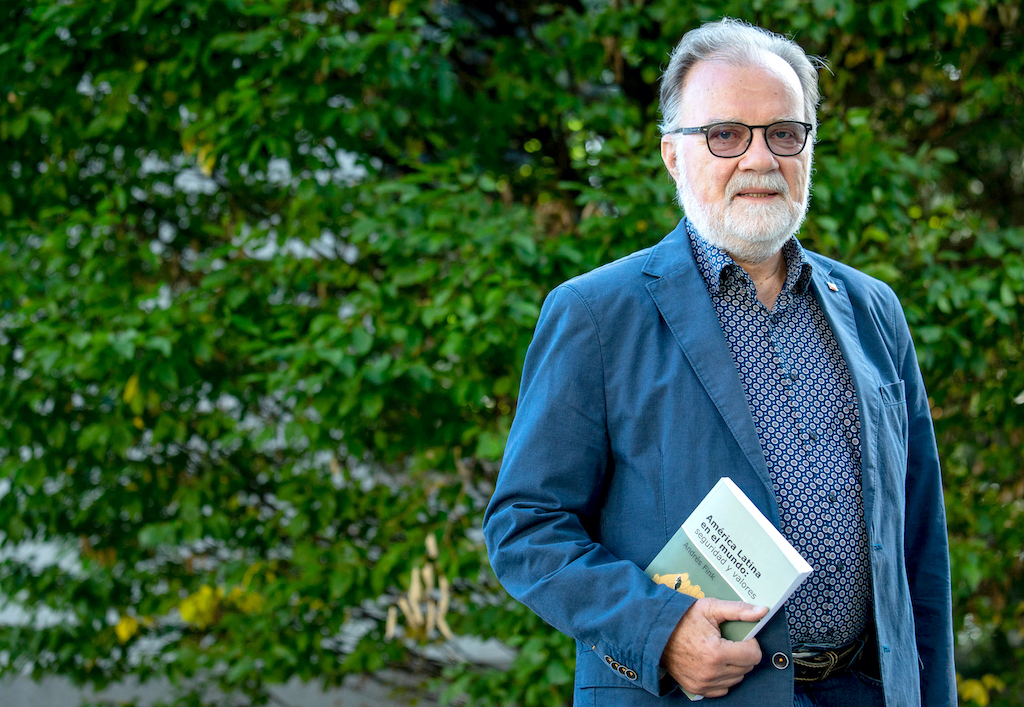By: Dr Andrej Fink
We are approaching some definition in the defensive war in Ukraine. The whole world is speculating about an imminent Ukrainian counter-offensive. According to normal logic, this counter-offensive, according to the information, should have happened as soon as tomorrow. In these matters, however, one must think anti-logically, beyond, or even against normal logic. In normal thinking, we have to give a certain meaning to words in order to be able to communicate at all. If someone tells us that something is white, we must believe that it is white. If we then realise that it is different, we have realised that we have been lied to. And it is impossible to live with a lie in a normal life. In the strategic realm, it is different because cheating is an integral part of it. If someone says the north, it must be understood that it will certainly not be that, but the south or some other side of the sky. Therefore, if we find ourselves speculating, we must know that almost certainly every conclusion is at least very relative. If the media expects the Ukrainian counter-offensive as early as “tomorrow”, it is certain that there will be no Ukrainian counter-offensive tomorrow.
Ukraine is cautious. There will certainly be a counter-offensive, but when and as appropriate. In the meantime, it is strengthening, getting promised military assets and ammunition, training its soldiers in more modern weapons, and perfecting strategic and tactical plans. Of course, Russia is doing the same and is preparing defence lines. Numerically and territorially, Russia is better, which was its characteristic in all the wars it fought in the last centuries (in the 18th against the Swedes, in the 19th against Napoleon, in the 20th against the Germans). It has more troops and territory. But at the same time, this also proved to be a weakness. The achievements of its army were not always as great as the numbers would suggest. The size of the territory was always in its favour, but only when it came to wars of large dimensions. This time, the war conflict in Ukraine is territorially limited. Offensiveness or defensiveness also play their role. Undoubtedly, for Ukraine, this war is defensive. In it, it exerts all its forces to defend itself against aggression. Russia, however, while hopelessly arguing that it is on the defensive because it is “defending its own people, who are second-class in Ukraine,” has not been as effective in its offensive action as one would expect from someone starting an armed conflict. If you start it, you have to have enough guarantees to be successful, otherwise you are a battle or lost the war from the start. Russia shows that its command and military are not of high quality.
More concrete factors must be added to these considerations. In Europe and elsewhere, it is historically clear that all wars began and were fought in late spring, summer, and early autumn. This is not absolute, because even in winter there is something to do. However, extreme weather conditions make war operations on land difficult. The combination of cold and unmelted snow makes movement extremely difficult, but when the snow begins to melt, it creates difficult-to-pass swamps in which even the tracked drive of tanks and armoured vehicles can be stopped. It should be considered that Ukraine is a predominantly flat territory (which is why it is a granary). For a successful counter-offensive, Ukraine must first see sufficiently dry ground. This spring, however, is still very wet there. It must also receive a sufficient number of tanks and ammunition promised from Europe and elsewhere for a longer war, so that it does not find itself in short supply in the middle of a counter-offensive.
In this context, the battle for Bahmut is something symbolic. It is also proof of Russian helplessness after several months of fighting to capture this city. In the last few days, it seems that there are movements in favour of the Ukrainians, which were not happening before. If the news is to be believed, the Wagnerians are suffering heavy losses there, and the Russian troops are abandoning their positions. Even worse, mercenaries lose international credit as successful and fierce fighters. The Russian army, however, is belittled by their leader Prigozhin himself. Putin wanted to capture the city by May 9th. He could not. The annual big celebration was pretty lackluster this year.
If Putin does not win this war convincingly, he is defeated. Apparently, he is not winning so far. We supporters of Ukraine think he should not win. Putin believes that by all means he must. There are no intermediate options. That is why his followers around the world are calling for diplomatic negotiations in order to somehow save their greatly diminished prestige. If Ukraine does well in the counteroffensive, a new story for Europe and the world will begin in those places. About that another time.

